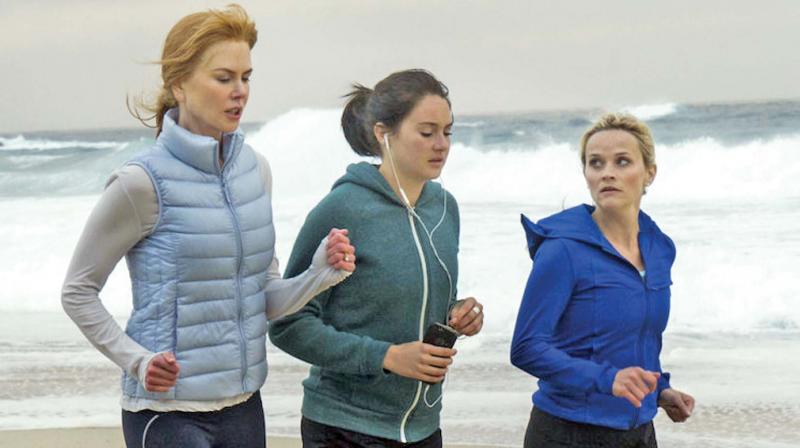At the centre of it all

HBO mini-series Big Little Lies absolutely swamped the Emmys recently, with several stars as well as the director taking home a number of honours. One actress, who was maybe overshadowed by the powerhouse performances of Nicole Kidman and Reese Witherspoon, was Shailene Woodley — who delivered in one of her career-best performances. Already renowned as one of Hollywood’s brightest young talents with her roles in movies like The Fault in Our Stars and The Descendants, Shailene’s BLL only serves to propel her to the brink of super-stardom! Here’s the 25-year-old talking to us.
Q Were you familiar with the story before you got this role? Had you read Liane Moriarty’s book, Big Little Lies?
SW: When I got the role, there were only four or five scripts done. David E Kelley was still working on the others. And so I started reading the book, but the character in the book was different than how my character was written in the script, so I didn’t read the whole book, because I didn’t want to get muddled.
Q What were your thoughts about Jane as a character when you first read the scripts?
SW: I found it really vital that Jane’s story be told. There are movies out there about young mothers or about pregnant teenagers, but not many that I’ve seen that authentically capture the motherhood aspect of someone who is that young. She was probably 19 when she got pregnant, and now is in her mid-20s with a seven year-old. She’s trying to navigate the chaos between being an adult for her son, and trying to grow up for herself.
Q You’ve been working as an actress since you were very young — did you ever feel that there wasn’t time for those things when you were growing up too?
SW: I did work really hard, but I also enjoyed myself too. The thing about being an actor is you have to experience life outside of your career for you to be someone who can bring authenticity and human experience to a character.
So I try to find the balance between the many different worlds that I find fascinating in this life. Whether it be acting, whether it be activism, whether it be pottery or writing or survival skills, whatever piques my interest. I think it’s important that I dive into those things, for my own evolution, and for my own growth, and it just happens to benefit what I do as a career too.
Q Having spent many years working in Hollywood, did you recognise those characters in the show from real life — those very privileged ladies?
SW: Well, I think we can experience that no matter where we are. Whether we’re in LA, or you’re in Atlanta, whether you’re in the south, or the north, the Midwest — privilege is a very real thing that we talk about. I live a very privileged life. There’s no denying that. But, in terms of separating material privilege from emotional privilege, I think, that’s something that’s not often talked about and the show demonstrates that.
You see Celeste’s (Nicole Kidman) character, who is beautiful and has the hot husband and the perfect twins and this beautiful home, and is also in a very abusive, aggressive and dangerous relationship.
Q Both of your parents have worked in education; were they helpful in helping you prepare for the aspects of the story about school life?
SW: My mom is a parent coach — that’s one of the things she does now, she coaches parents. She doesn’t disclose many stories, just for confidentiality reasons, but from what I’ve witnessed, and some of the stories that she has told, there’s a real phenomena of giving your child too much power. There’s a difference between being a controlling, dominant parent who is unkind, and being someone who expresses boundaries and restrictive natures so that when this child is nurtured into adulthood, they don’t enter the world and realise that they don’t have feet to walk on.
I think social media is catering to that problem, and I think the internet and technology and reality shows are catering to that too — we’re just feeding false narratives about society. I’m excited to have a child one day, but I want to be cautious and aware — you need to give your child power and empower them to be an individual, but not give them a false reality of what the real world is like.

